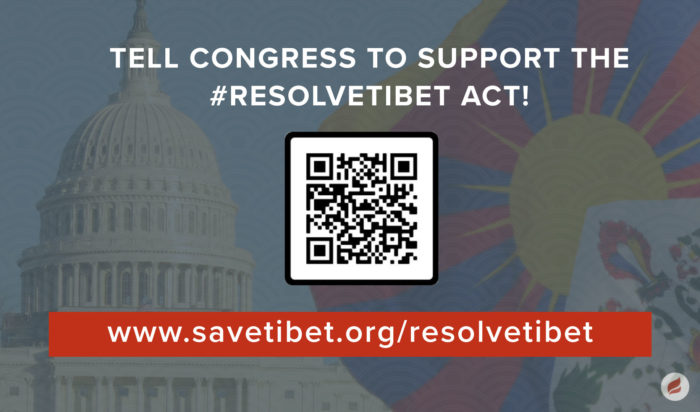Leaders of the International Campaign for Tibet outlined in a recent live discussion the significance of a new bill that can help the US proactively work to resolve China’s decades-long, illegal occupation of Tibet.
The Promoting a Resolution to the Tibet-China Conflict Act, introduced in the US Congress last month, says that Tibet’s status is unresolved under international law—and that China is violating the Tibetan people’s right to self-determination.
The bipartisan bill will pressure Chinese officials to resume negotiations with the representatives of the Dalai Lama for the first time since 2010.
China has illegally occupied Tibet for over 60 years, turning it into the least-free country on Earth alongside South Sudan and Syria.
“Even as this legislation goes through its process in the Congress,” ICT Interim President Bhuchung K. Tsering said, “we feel the Biden administration has enough leeway to see that a proactive initiative is taken on Tibet, so that it can help resolve the unresolved issue of Tibet.
“That is the way, I think, we should look at this legislation,” he added.
Tsering was speaking July 27 on ICT’s Tibet Talks, a live conversation series and podcast.
Context of legislation
The Tibet Talk gave ICT leaders the chance to answer questions about the new bill from ICT members, as well as from other Tibetan Americans and Tibet supporters.
Tsering began the discussion by sharing his “heartfelt gratitude” to Reps. Jim McGovern, D-Mass., and Michael McCaul, R-Texas, for introducing the bill.
He explained that the legislation addresses concerns that the US has given up on resolving Tibet’s status since the Chinese government walked away from negotiations 12 years ago.
“Thereafter we haven’t had any resumption of the dialogue process,” Tsering said, “and Congress has been concerned about that situation and has been looking at ways to promote novel approaches to the issue of Tibet.”
Accordingly, Tsering said, Congress passed the Reciprocal Access to Tibet Act in 2018 and the Tibetan Policy and Support Act in 2020.
Tsering also put the bill in the context of international relations, saying that many countries are taking a more assertive approach to China after years of mistakenly believing that placating the Chinese government would lead it to improve on its own.
The new legislation, Tsering added, will provide a vital tool for the administration of President Joe Biden, who came into office promising to “work with our allies in pressing Beijing to return to direct dialogue with the representatives of the Tibetan people.”
Legislative process
After Tsering spoke, Franz Matzner, ICT’s Government Relations Director, joined the Tibet Talk to answer questions about the bill.
Matzner said the Promoting a Resolution to the Tibet-China Conflict Act could “set a model for the international community. This is certainly something that other countries, through their legislative processes, could pick up.”
In the United States, House members on both sides of the aisle can now cosponsor the bill.
“We fully expect this legislation to get strong support. We’re very hopeful it will pass out of the House,” Matzner said. “We hope that will be a speedy process that will lead to a parallel process in the Senate, where we’ll be looking for Congressional leaders to introduce a version of the bill, if not the identical legislation.”
“We need President Biden’s signature on this legislation as soon as possible,” Matzner added.
What Tibet supporters can do
Matzner also answered questions from the audience.
He encouraged ICT members and other supporters of Tibet to ask their representatives in Congress to support the legislation.
“Nothing is more effective than direct constituent outreach to members of Congress,” he said, such as sending handwritten postcards to representatives and visiting their state offices to encourage them to cosponsor the bill.
Matzner also noted that ICT will soon announce a new Tibet Lobby Day that will focus on gathering support for the bill and getting it passed.
For now, he said, Tibet supporters can help advance the legislation by adding their names to ICT’s petition to House members.
By signing the petition, they can send it directly to their representative’s office, asking them to support the Promoting a Resolution to the Tibet-China Conflict Act.

Learn more about the Promoting a Resolution to the Tibet-China Conflict Act.

